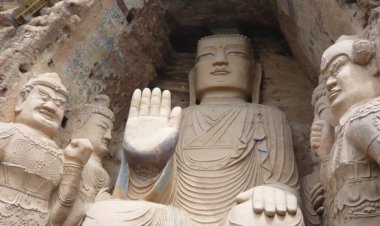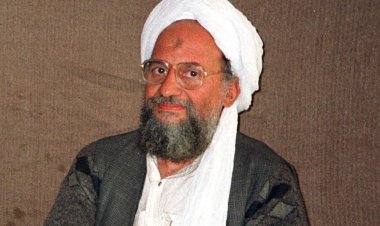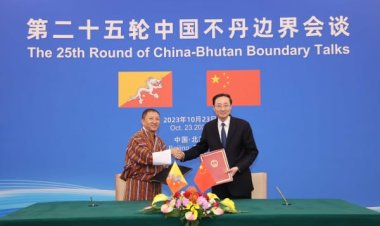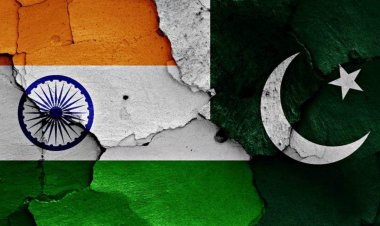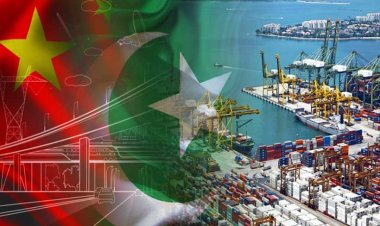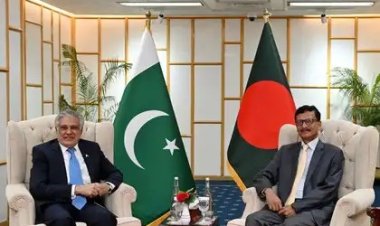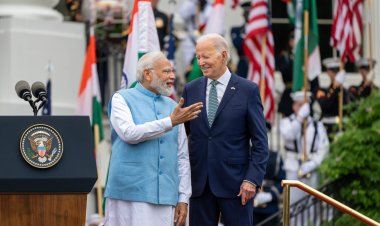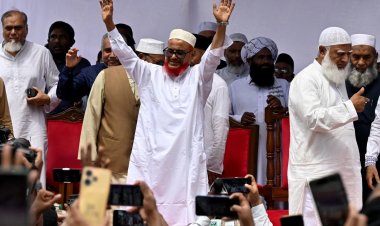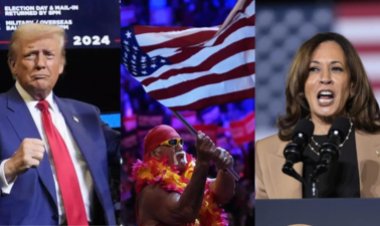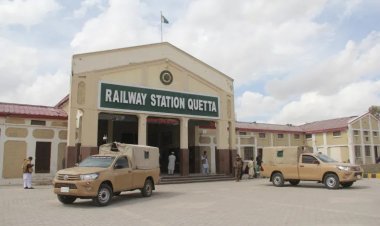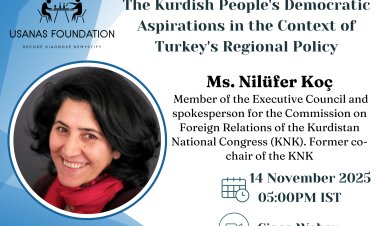Tyranny of Military: Unending Burmese Wait for Democracy
The long-standing history of tyranny of the military in Myanmar
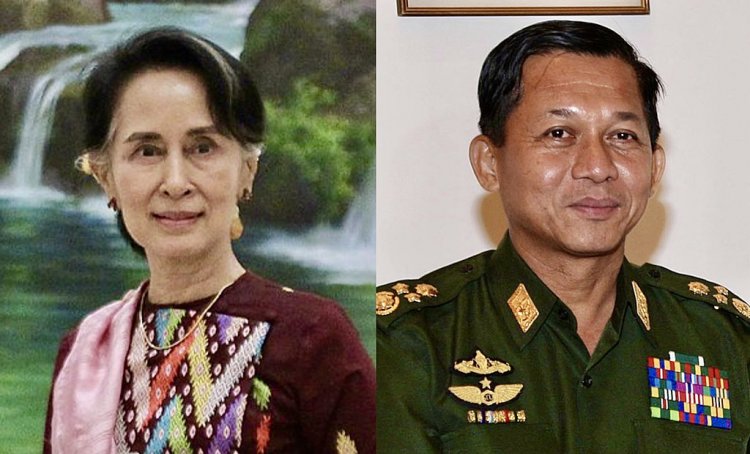
Commentary
By Indu Saxena
Myanmar has witnessed a ruthless military rule since its independence from Britain in 1948. On 1st February 2021, Myanmar military detained many political leaders, activists and senior leaders of the National League for Democracy (NLD) in Naypyidaw and other parts of the country. Aung San Suu Kyi, the popular leader in Myanmar and the President of NLD was detained in her house. Experts believe that the reason behind it is NLD's popularity among people and securing a maximum number of seats in the general election held in November 2020. Although the powerful military, "Tatmadaw" began parliamentary election in 1962, Myanmar's transition to a quasi-democracy since 2011 ceased in 2021,
In November 2020 election, NLD won 346 seats, which is more than the 322 seats required to form a new government. The election resulted in favour of Aung San Suu Kyi, a democratic icon who startled the military regime. It appears that the army is trying to reverse the election, accusing the election as unfair and biased. Ms Suu Kyi is held at her home and police filed several charges against her and sent in custody until 15th February.
On this constitutional crisis of Myanmar, UN Secretary-General Antonio Guterres said that election turnover is "unacceptable" and urged the international community to prevent any possible military takeover. However, China-backed by Russia blocked the UNSC statement condemning the military crackdown on elected leaders and seizing power.
Ruthless military regime since the dawn of Burma's Independence
The Tyranny of the military has a long-standing history in Myanmar's (Burma). The assassination of General Aung San in 1947, a national hero of Burma's independence, the founder of Burma National Army, ramified Burma into a military-dominated state. Myanmar remained a quasi-parliamentary democracy with heavy military influence until the military coup by General Ne Win in 1962.
The coup leader General Ne Win imposed a harsh authoritarian regime, featuring suspension of 1947 constitution, suppressing demonstrations and arresting political opponents and heavy-handedness on "ethnic armed groups".
The resentment against Ne Win's regime exploded into a mass protest in 1988, predominantly led by students demanding multi-party system, resulted in the replacement of old military regime to the new one and the formation of the State Law and Order Restoration Council (SLORC). The new military regime stood on the burial of hundreds of thousands of protesters.
At the same time, pro-democracy voices grew stronger; therefore, SLORC allowed political parties to register. Since this significant development, Daw Aung San Suu ki, the daughter of Major General Aung San, founded the National League of Democracy (NLD) and raised her voice against the abuse of power by the military and made pressure on the military regime to hold elections. The Military Junta had placed her under house arrest as she challenged the legitimacy of the military rule.
Under the domestic and international pressure, the military regime held the election in 1990, the NLD won the elections, but military Junta refused to accept the election result. Military maintained the tight control over the government, arrested elected leaders and activists, including Suu ki who was placed under house arrest, with a condition of isolation in which she remained intermittently for two decades.
In 2008, the military regime adopted a new constitution in a controversial referendum, ensuring the military's control over the government by reserving 25 per cent seats of parliament for military officials. The new constitution also disqualified the spouse or a parent of foreign national from becoming President of Myanmar, a provision inserted to prevent Daw Aung San Suu ki from holding the President's office.
Nonetheless, Suu ki sought popularity at a national and international level as well. Her party kept on winning elections in 2015 and 2020, served as a "state counsellor of Myanmar".
Military Regime and Genocide
The military regime showed another brutal face in 2017 when it started the "clearance operations" to wipe out the ethnic minorities, mainly Muslim Rohingya. According to the United Nations Office for the Coordination of Humanitarian Affairs (UNOCHA), "since then, an estimated 745,000 Rohingya—including more than 400,000 children—have fled into Cox's Bazar".
The former High U.N. High Commissioner for Human Rights described the military operations as "a textbook example of ethnic cleansing" and stated the military actions seemed to be "a cynical ploy to forcibly transfer large numbers of people without possibility of return".
In 2019, an Independent International Fact-Finding Mission on Myanmar (IIFFMM), established by the Human Rights Council (HRC), submitted its report of "genocidal intent" of the military regime against ethnic minorities in Myanmar. Marzuki Darusman, chair of the Fact-Finding Mission, said, "The international community must hold the Myanmar military to account for the tremendous pain and suffering it has inflicted on persons of all genders across the country."
Notably, it was very shocking for the international community and pro-democracy groups when the state counsellor Suu ki supported the military regime against the accusation of genocide, in the International Court of Justice (ICJ) in December 2019, despite her perpetual efforts for establishing democracy in Myanmar.
Counting on China and Geopolitics
Despite the severe condemnation at the international level, for the Rohingya crisis, Myanmar heavily relied on China for its diplomatic support. China used its Veto Power to fend off any action against the military regime. China has been diplomatically supporting Myanmar in the United Nations. The reasons behind this as follows: First, is an ideological reason, to discredit and disregard any democratic process in its neighbourhood and promote Chinese style authoritarianism. Second, is geopolitics, to have an ally in South East Asia, to bandwagon with and oppose the West. Third, is economical, an autocratic regime is easy to corrupt & bribe to facilitate the expansionist exploitative Chinese investment and infrastructure projects to penetrate Myanmar.
However, White House strongly condemned the military coup and detention of Aung San Suu ki, and termed it an "assault on democracy and the rule of law". The United States President Joe Biden discussed the strategy to deal with China and military coup in Myanmar, with Australian Prime Minister Scott Morrison. The first and foremost action could be the widening the sanctions on Myanmar by the US and its allies. However, it is significantly less expected to take any steps towards military intervention in Myanmar, given the pandemic crisis as countries worldwide struggle to lessen Covid19 impact.
A Hope for Democracy?
It is well understood that Tatmadaw is very powerful in Myanmar, and it is likely impossible for them to accept the election results and secede power to democratically chosen representatives. It is widely believed that major Western powers and UNSC could not do much regarding the Rohingya crisis as China and Russia continue to support Myanmar military and its actions at UNSC.
It is worth to ponder that mere condemnation and limited sanctions by the US and other members of the international community would not intimidate the military ruler into bringing normalcy back and transfer the power to elected leaders, as long the military enjoys the support of China and Russia.
Indu Saxena holds an MS degree in global affairs from Rutgers University-New Jersey, United States. She earned her PhD in political science. She has presented her papers in international seminar and conferences. She has published six papers and has been working on a paper on 'Rohingya Crisis in Myanmar'.
Disclaimer: The paper is the author’s individual scholastic articulation and the facts and figures quoted are duly referenced, as needed, and are believed to be correct.


